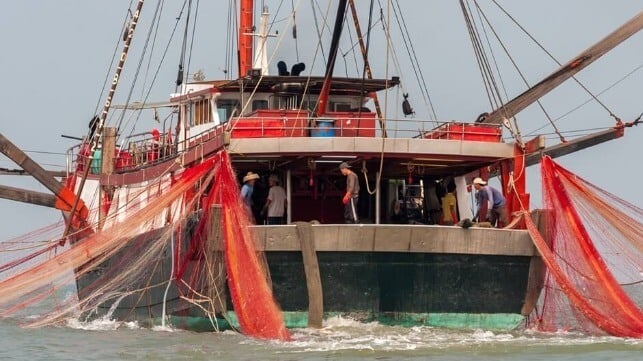Study: Life At Sea is the Most Dangerous Way to Earn a Living

Working on or near the sea is the most dangerous way to make a living, according to new survey results from the Lloyd's Register Foundation and Gallup. People that the survey categorized as "ocean workers" - a broad group containing "those who work on or near the water" - reported higher rates of injury than any shoreside industry grouping.
According to the poll, fully 25 percent of all "ocean workers" reported experiencing harm on the job within the past two years. This was seven points higher than the global average, and more than twice the rate of reported injuries in the safest sector, the utility industry.
Workers in this broad category reported lower rates of safety training than workers in shoreside industries. 32 percent said that they had received occupational safety and health training at some point in the past, compared to 38 percent of workers in all other industries. They were also much less likely to tell anyone about it if they got hurt, reflecting a cultural preference for toughness. Only 41 percent of workers who reported that they got hurt at sea said that they reported the incident, 10 points less than the average in other industries.

that matters most
Get the latest maritime news delivered to your inbox daily.
Lloyd's Register Foundation also found that - as could be expected from the seagoing life - "ocean workers" were more exposed to risk from weather than any other group. 33 percent reported serious personal harm from severe weather within the last two years, compared to just 20 percent of other workers.
However, the results may not be representative of risks faced by seafarers in commercial maritime commerce: the poll's "ocean worker" statistics include injury rates in the fishing industry, which has a higher risk profile than that found in commercial shipping. In the United States, the workplace fatality rate in the fishing industry is 28 times higher than the national average for all industries. Worldwide, the Pew Charitable Trusts estimates that about 100,000 people die in the fishing industry each year, with many deaths unreported due to the informal, exploitative practices of IUU fishing operators.
